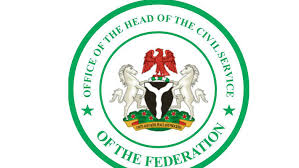I attended a worthwhile and most productive workshop last week on “Experience Sharing In Investigative Journalism In Nigeria,” which was sponsored by the MacArthur Foundation and organized by the Faculty of Communication, Bayero University, Kano.
The event was graced by veteran journalists like Alhaji Halilu Ahmed Getso and Aliyu Baba Barau; mass communication scholars and most especially the outstanding Ghanaian Award Winning World Renowned Investigative Journalist, Anas Aremeyaw Anas. Indeed, a lot was shared and a lot was learned in the event.
I, for one, was greatly inspired by the work of the veteran investigative journalist and earnestly hope to become one someday. Anas shared a lot with the audience on his experience so far on investigative journalism, especially the challenges he faced, as well as his conquests. Hence, the conclusion that Investigative journalism is not a child’s play or a piece of cake.
Investigative journalism is an endeavor meant for the brave, the hardworking, the tenacious, the diligent, the fearless, the resourceful, the clever, and absolutely not for the contrary. As Anas said, “Journalism is a hot kitchen and if you don’t have the capacity and tenacity to stay in the kitchen just walk out.”
The truth has to be exposed and told by any means; at all costs, and investigative journalism is one of several ways to do so. After all, journalism is all about the truth. Consequent to Anas’s efforts to uncover the truth, a number of illicit and corrupt acts and other wrongdoing, both seemingly trivial and significant, in Ghana and beyond, were exposed and necessary actions were taken to deal with such. However, “public interest is key” as Anas said, in the pursuit of the truth or a story.
Ghana in the Eyes of God (2015) and Number 12 (2018) are two of Anas’s most recent and influential works. The Ghana in the Eyes of God is a case in which Anas’s investigation into the judiciary of the republic of Ghana resulted in the probing and removal from office of workers from the third arm of government, while the Number 12, so named because corruption was the “12th player on the football team,” is an exposé which implicated almost the entire football administration in Ghana and forced the resignation of the then Ghana Football Association president, Kwesi Nyantakyi, after he was filmed by Anas accepting a bribe. The Super Eagles Coach, Salisu Yusuf and other figures were also found to be involved in the scandal.
Such outstanding works have won Anas multiple awards and have earned him worldwide recognition with Barack Obama highlighting his virtues in a speech during a 2009 visit to Ghana in which he said, “An independent press. A vibrant private sector. A civil society. Those are the things that give life to democracy…We see that spirit in courageous journalists like Anas Aremeyaw Anas, who risked his life to report the truth.”
“Sometimes it takes a spark, just a spark and I think Anas has provided that spark for the whole edifice to blow up for people to wake up and say: ‘No more,’” said Kofi Annan on the Ghana Football Association cash gift scandal.
Anas has proved to be quite the investigative journalist. He uses undercover journalism to “Name, shame and jail,” as he believes drastic measures need to be taken to tackle the levels of corruption. His work as an undercover journalist exposes corrupt public officials, quack professionals and so on, while he utilises camouflage and spy camera mostly as means to accomplish the task.
Investigative Journalism is an interesting endeavor. It plays a key role in serving society by detecting corruption, enhancing transparency, and reinforcing public opinion. It is the most challenging, yet rewarding endeavor. It faces numerous legal, political, economic, cultural and religious obstacles. The challenges facing investigative journalism vary by culture and are influenced by politics, financing, time constraints, the commitment of media owners and journalists, and legal restrictions imposed by governments (Baker, 2005; de Burgh, 2008). Also, several issues impact investigative journalists’ ability to act with intellectual and professional freedom. The most common challenges to investigative journalism include lack of or difficult access to information and official documents, media owners’ mandates, high cost, cultural and religious limitations, threat to life, inter alia.
Despite its challenges, a course on investigative journalism should be included in the curricula in colleges and be encouraged and practiced often in the journalism profession. Such will, arguably, facilitate and bring about change and development in the society.
Sheme, a 400 level student of Mass Communication, Bayero University, Kano, writes via [email protected]



